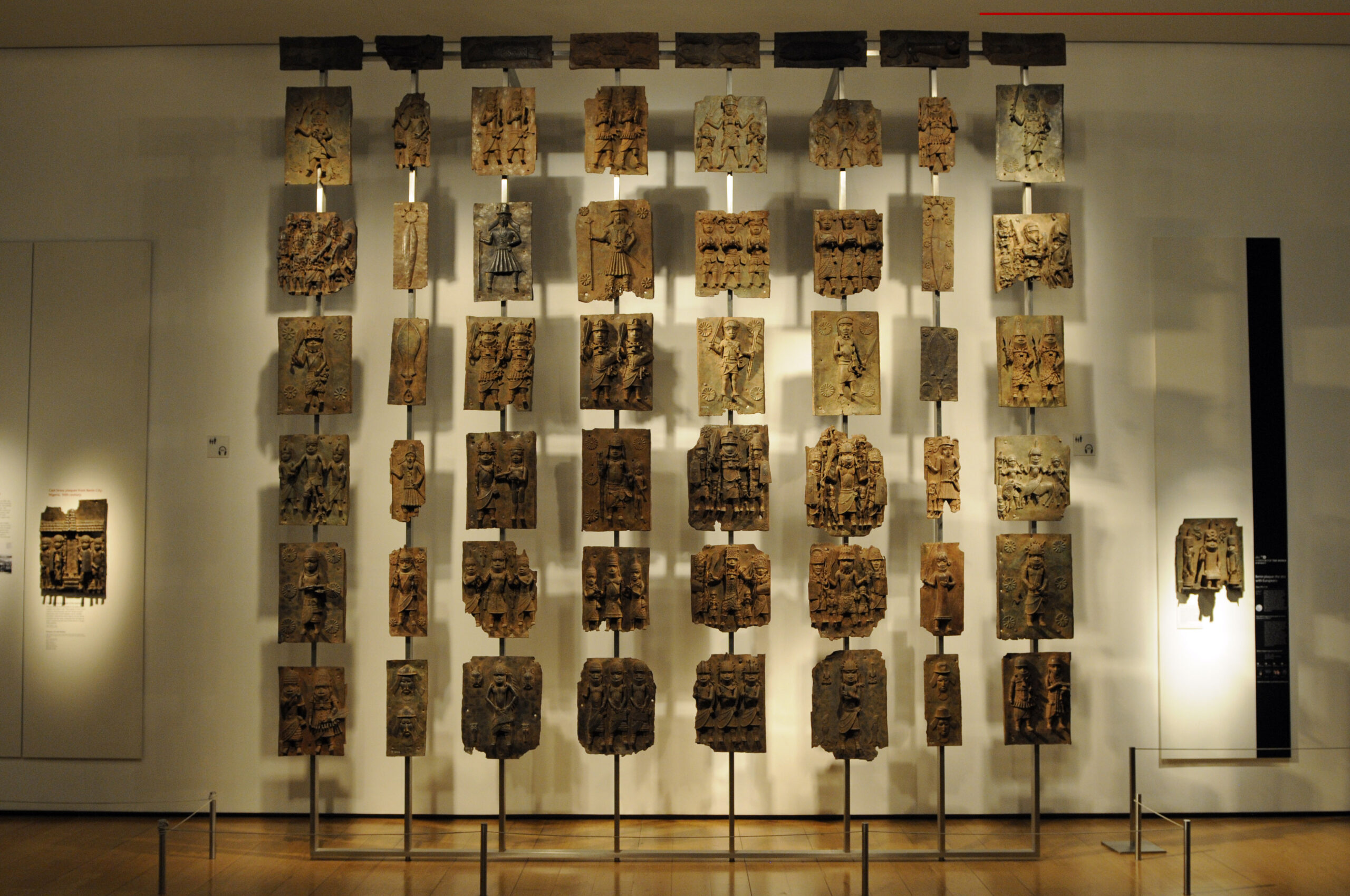
The Benin Bronzes on display at the British Museum
Photo: Son of Groucho
British Museum: From looter to looted
From the perspective of Greece or Nigeria, the word irony hardly does justice to the sad spectacle unfolding at the British Museum, writes Barnaby Phillips.
A museum whose detractors say is full of looted objects has itself been looted. Moreover, a museum which once brushed away restitution claims on the basis that it was the best custodian of the world’s treasures is now revealed to be not only incompetent, but also hypocritical.
The British Museum, it turns out, cannot even be sure what has been stolen from it, because it does not know exactly what it has. “It’s beyond ridiculous,” says Labour MP Bell Ribeiro-Addy, an advocate for restitution, “that this went on for so long and that objects were being sold on eBay”.
The British Museum has faced demands for the return of its most contested treasures for decades. In 1975, its trustees acknowledged that “the question of the restitution of cultural property was a matter of great importance which could not be expected to die away but would have to be met”.
A museum increasingly unsure of itself
Back then – and until relatively recently – the British Museum had a confidence in its mission and purpose. David Wilson, Director of the British Museum from 1977 to 1992, wrote assuredly that “we cannot contemplate the return of any part of our collections to the country of origin [because of a] sense of curatorial responsibility of holding material in trust for mankind throughout the foreseeable future”.
In recent years, however, as the demands for restitution of colonial looted art have grown more assertive, the British Museum has appeared increasingly unsure of itself. Dr Hartwig Fischer, a respected historian and curator, is a less confident political performer and communicator than his predecessor, Dr Neil MacGregor.
Morale is very low. A curator told me there is “no openness, no discussions, no communication with staff”. Often, the British Museum has appeared out of step with its counterparts. For example, many museums with collections of Benin Bronzes – in Germany, the United States and in Britain – have promised to return them to Nigeria, but the British Museum has only offered loans.
 The Parthenon Marbles in the British Museum. Photo: Txllxt_TxllxT
The Parthenon Marbles in the British Museum. Photo: Txllxt_TxllxT
The arguments for restitution are moral
All this means that this scandal has come at an especially awkward time. But it does not change the fundamentals. Greece says the Parthenon Marbles should be returned to Athens because Lord Elgin had no right to take them at the beginning of the 19th century. Likewise, Nigeria says the Benin Bronzes should go back to Benin City because British troops stole them in 1897.
The same goes for Ethiopia with the pillage of Maqdala in 1868, and Ghana with the sacking of Kumasi in 1874. And so on. In other words, these arguments are moral at their core, not based on comparative standards of custodianship or curatorship.
Indeed, despite the British Museum’s current embarrassment, this is where the countries who want their treasures back are often on strongest ground. Greece has built a splendid new Acropolis Museum. But in Nigeria, for example, authorities disagree on where the returned Bronzes should be displayed and a much-discussed Benin Royal Museum remains theoretical. Nigerian museums suffered their own notorious spate of thefts in the post-independence era – none of which led to principled resignations from those in charge.
No political appetite for a change in the law
The big political picture in the UK has not changed either, or at least not yet. The British Museum, famously, is severely constrained in its ability to permanently return objects from its collection by the British Museum Act of 1963.
The current Conservative government says it has no intention of amending the Act. And George Osborne, the former Conservative Chancellor and Chairman of the British Museum has also spoken against permanent returns.
“Creating this global British Museum was the dedicated work of many generations,” he said at the 2022 trustees dinner. “Dismantling it must not become the careless act of a single generation.”
Complete re-set required
But would a future Labour government want to amend the Act? Although some MPs are keen to see this happen, the Labour leadership is wary of getting dragged into culture wars, and I’m told by party sources it would not be priority.
One member of staff at the British Museum said that at least the crisis had exposed the scale of problems at the institution: “There is an overwhelming array of different issues, and the museum needs a complete re-set. This has opened up the floodgates to all the day-to-day inadequacies.”
The incoming Director will face enormous challenges, on several fronts. Articulating and pursuing a coherent policy on restitution will be one of the most daunting.
Barnaby Phillips is a freelance journalist and author of Loot – Britain and the Benin Bronzes.
![]() @BarnabyPhillips
@BarnabyPhillips
Join the Discussion
You must be logged in to post a comment.